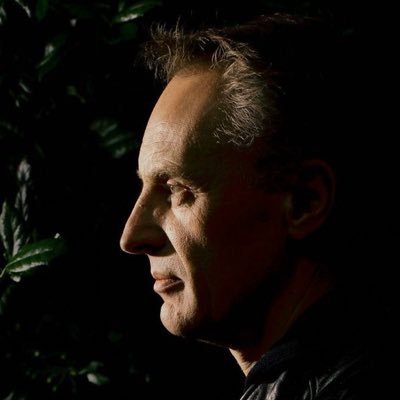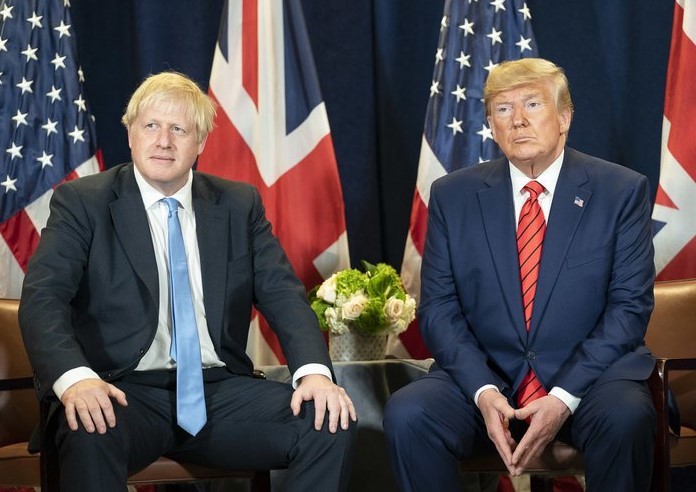The COVID-19 Catastrophe: What’s Gone Wrong and How to Stop It Happening Again
By Richard Horton
Polity (2020)
Feeling a bit under the weather, you go to your doctor. He knows your medical history, he checks your symptoms, he comes up with a diagnosis, and then he chews you out for behaving precisely as you’re not supposed to, thereby making yourself sick. What’s worse, you’re now a menace to the health of everyone around you. If you don’t shape up, you’ll ship out — in a body bag.
That’s the structure of this short, angry, and powerful book, written while the author was in lockdown in the U.K. Richard Horton is a doctor, but for a quarter-century he has been editor-in-chief of The Lancet, flagship of a fleet of important medical journals. As such, he has monitored global health through outbreaks of Ebola, SARS, MERS, cholera, H1N1 influenza, Zika, and the steady, deadly background noise of malaria, measles, and other diseases.
While locked down and dealing with a flood of incoming reports on COVID-19, Horton has also managed to write a clear, concise account of our own incompetence and folly — both in preparing for a pandemic everyone knew was coming, and in responding to it once it arrived. While politicians and bureaucrats take much of the blame, so do scientists. And so does everyone else.
His summary of the emergence of COVID-19 covers the key points and the questions they raise. If the first cases were noted at the beginning of last December, why wasn’t World Health Organization notified until New Year’s Eve? And once notified, why didn’t WHO respond more quickly, and why didn’t it engage health scientists from around the world in learning about the new virus from their Chinese colleagues?
Slow and confused
The world’s response to clear signs of impending disaster was woefully slow and confused. Governments, especially those of the U.K. and the U.S., come in for Horton’s condemnation: “The science and politics of COVID-19 became exercises in radical dehumanization.… At press conference after press conference, government ministers and the medical and scientific advisors described the deaths of their neighbours as ‘unfortunate.’ But these were not unfortunate deaths. They were not unlucky, inappropriate, or even regrettable. Every death was evidence of government misconduct — reckless acts of omission that constituted breaches in the duties of public office.… Missed opportunities and appalling misjudgments were leading to the avoidable deaths of tens of thousands of citizens.”
Horton marvels at the American response: “The story of COVID-19 in the U.S. is one of the strangest paradoxes of the whole pandemic. No other country in the world has the concentration of scientific skill, technical knowledge and productive capacity possessed by the U.S. It is the world’s scientific superpower bar none. And yet this colossus of science utterly failed to bring its expertise successfully to bear on the policy and politics of the nation’s response.”
Ignoring the warnings
About the U.K. under Conservative Prime Minister Boris Johnson, Horton is devastating: “From the last week in January, it took the U.K. government seven weeks to recognize the seriousness of COVID-19. It wasted the whole of February and most of March, when ministers should have been preparing the country for the arrival of a deadly new virus. Why? Inexplicably medical and scientific advisers to the U.K. government ignored the warnings coming from China.”
The same was true of the U.S., which soon started blaming China, triggering a wave of anti-Asian racism in the process. It was easier to blame the Chinese than admit they themselves were making things much worse.
Horton well recalls China’s disastrous response to SARS in 2003-04, when Beijing tried to keep a lid on the outbreak. He argues that the Chinese learned a lesson: they developed a powerful health-care system, full of highly trained experts with excellent resources. After a month’s silence (suppression? apathy?), they moved very fast. By mid-January Chinese scientists gave the world the virus’s genome, and Chinese research was on the internet.
Yet other countries’ scientists and officials didn’t pay much attention. One Italian doctor observed that the lockdown of Hubei province seemed to her and her colleagues like something from a science fiction movie. Then the virus hit Lombardy, and soon all of Italy had to be locked down.

As tough as Horton is on politicians, he’s even tougher on his scientific colleagues who let the politicians get away with their misbehaviour. The U.K. scientists on the top advisory committee “astonishingly… allowed the participation of the architect of Brexit, Dominic Cummings, who had been appointed by Prime Minister Boris Johnson as his chief political advisor.” The committee, as a result, “was impossibly compromised.”
Horton knows that scientists have been bracing for a pandemic for decades. But they tended to assume it would a repeat of the influenza pandemic of 1918-19. Their exercises showed they were gravely unready for such a repeat, and equally unready to adapt their plans to a different kind of virus.
A two-count indictment
Horton draws up a two-count indictment of science policymakers in the U.K. First, he says, they were corrupted: “the system resulted in an abuse of entrusted power,” in which policymakers failed to act on China’s clear warnings. “Second, it was collusive — scientists and politicians agreed to act together in order to protect the government to give the illusion that the U.K. was an ‘international exemplar’ in preparedness and made the right decisions at the right time, based on the science.… Advisers became the public relations wing of a government that had failed its people.”
It wasn’t just a British problem. “Whatever the reasons,” Horton says, “the leadership of medicine in the U.K. and in many other western nations let down those they were supposed to protect. They let down the old, the sick and the vulnerable. They betrayed the very people who had invested their trust — and their taxes — in modern medicine. It was a grubby betrayal, a stain on the leadership of a profession whose frontline workers had given so much.”
Horton’s polemic gains force because he’s not an outsider ranting about Big Pharma or medical conspiracies; he’s very much an insider, keenly aware of his profession’s weaknesses and of how strong it could be if society were only organized better. He concludes with a look ahead, to a “vigilant society” that pays attention to pandemics and the social conditions that let them thrive.
This pandemic has shaken the old society beyond repair; Horton quotes U.N. Secretary General Antonio Guterres’ observation that we are now enduring a “tsunami of hate and xenophobia, scapegoating and scaremongering.” But we have also gained a new appreciation of public health and the value of “essential” workers who keep society running. A new society, Horton argues, will reflect that appreciation:
“Resilient health systems will be constructed to be better prepared to withstand the shocks of sudden new diseases. Health and social care will be unified into a single health-care system. A redistribution of esteem will recognize (and reward) key workers. Inequality will rise on the public’s list of political priorities.… Governments will attack inequality with every fibre of their political being.”
Well, they will if they realize that another pandemic will be their ruin, and if the societies that they govern change as Horton thinks they should: “The political, economic, social, technological and environmental determinants of a stable and sustainable society will become matters of the utmost political importance.”
Disease as a social pathology
Horton foresees political parties actively recruiting more scientists, if only to meet the demands of a changed public. “Publics will no long view disease as a pathology of the body,” he predicts. “We will see disease as a pathology of society.” Medicine and other sciences will change as well, adopting the concept of “One Health” — that the health of humans and that of animals are linked. Universal health care will be not just a nice idea for rich countries, but a matter of self-preservation for rich and poor alike: “My health depends on your health. Your health depends on my health. We cannot escape one another.”
How we are to achieve a pandemic-proof society is up to us. But Richard Horton has pointed the way, and if we fail we will have no one to blame but ourselves. ![]()
Read more: Politics, Coronavirus

















Tyee Commenting Guidelines
Comments that violate guidelines risk being deleted, and violations may result in a temporary or permanent user ban. Maintain the spirit of good conversation to stay in the discussion.
*Please note The Tyee is not a forum for spreading misinformation about COVID-19, denying its existence or minimizing its risk to public health.
Do:
Do not: